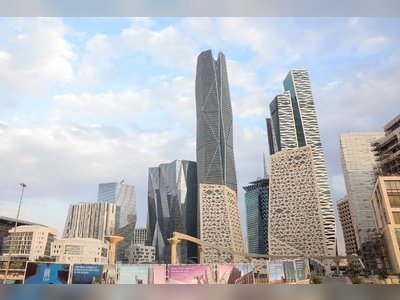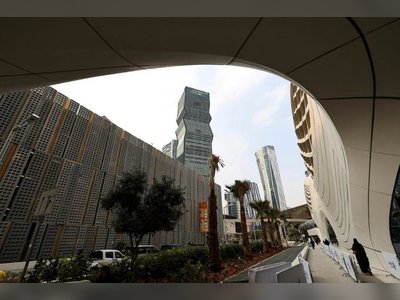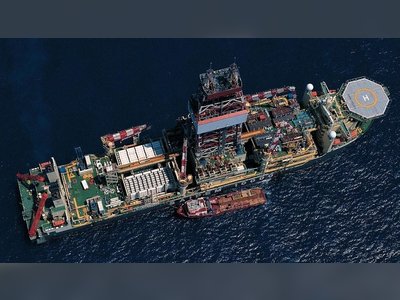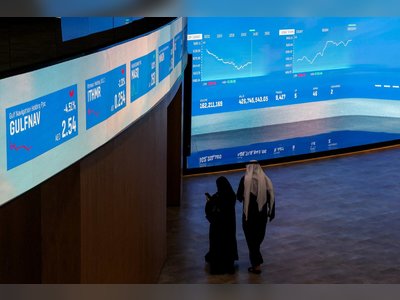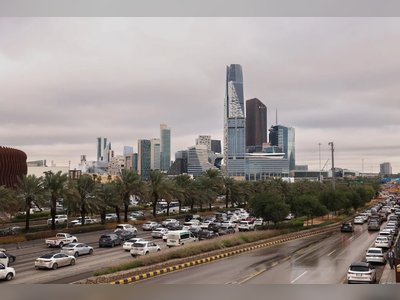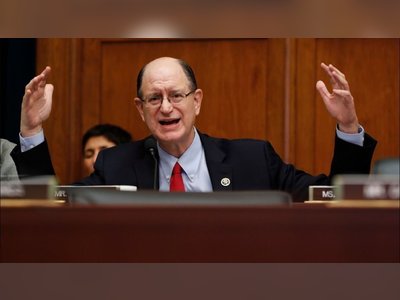
In Lebanon, Expanded Army Powers Formalize Long-Tightening Media Restrictions, Journalists Say
The measures, approved during an emergency Cabinet meeting with President Michel Aoun following a massive Aug. 4 blast at the Port of Beirut, allow the army to ban assemblies, impose curfews, censor media it deems a national security threat and try civilians in military courts.
The explosion killed nearly 200, injured thousands and left about 300,000 homeless, according to statistics by the United Nations and Beirut Gov. Marwan Abboud.
"Under the state of emergency law, they can interfere with the media,” said Kareem Chehayeb, a Beirut-based reporter for The Public Source, an independent investigative media outlet that covers socioeconomic and environmental crises in Lebanon.

Authorities have not used the new powers against the media, but Chehayeb and others say it adds to the chilling effect.
"People are definitely more paranoid to speak because of security forces everywhere," Chehayeb, who has spent most of his time reporting from people's homes and hospitals, said of the new regulations.
The temporary measure, originally slated for parliamentary renewal on Aug. 21, alarmed international civil rights groups, who say it could be used to enforce martial law indiscriminately and silence or jail critics of the country's political elite.
Lebanon’s Parliament, however, is in recess, and it is not known if or when the measure will be renewed. Broad parliamentary support for the law, which came in the form of an Aug. 13 landslide that saw only one dissenting vote, cited the "exceptional circumstances" following the blast.
The Army had "not taken steps that people fear, nor suppress television (channels). And despite the chaos in the media, it did not intervene, and left room for protest," Parliament speaker Nabih Berri said during the legislative session, according to Al Jazeera.
The Lebanese Embassy in Washington did not respond to VOA’s emails requesting comment.

The new law "spells out fears that journalists have long had," said Vienna-based Ravi R. Prasad, advocacy director for the International Press Institute.
"Local media have vehemently criticized the government on issues of corruption, power grabs by the political elite and inaction that led to the devastating explosion in Beirut," he said. "Owing to this criticism, (Lebanon-based journalists see) that it is only a matter of time before the government and army, which has been given sweeping powers to stifle protests and free speech, will act against journalists and media outlets that are critical of the current government."
Journalists see the measures as a further tightening of freedoms after months of protests in Beirut over political and economic instability.
During the Aug. 8 demonstrations following the deadly blast, security forces and protesters injured at least 13 journalists, according to the Skeyes Center for Media and Cultural Freedom, a nonprofit that monitors press violations throughout the Middle East.
"From my part, much of my reporting has been indoors, so I can’t give you clear examples of the security forces or army harassing me. But covering protests has proven to be a bigger risk," Chehayeb said. "We witnessed an escalation in security forces attacking journalists in January, but that became far worse after the explosion during protests."
Beirut-based photojournalist Hasan Shaaban, who says he was assaulted by police at least a dozen times while covering street protests since October 2019, said, "They are tightening things against us, but till now, not in a direct way.”
The new measures could mean fewer protests or gatherings "because people are afraid of going to jail," he told VOA.
Shaaban, who works with Bloomberg News and Beirut’s Daily Star, said he and several other photographers were nearly assaulted while covering protests that followed the port blast.
“After the explosion, we had three days of protests and riots,” he said. “The first day, we almost got beaten. But we fought back, and other photographers were close, so the police knew there would be photos and evidence. So, they backed off.”
Ignacio Miguel Delgado, Middle East and North Africa representative for New York-based Committee to Protect Journalists, said the emergency law has only formalized a repressive approach to tamping down dissent.
"The declaration of the state of emergency granting additional powers to the army hardly comes as a surprise," Delgado told VOA. "Press freedom in Lebanon has been deteriorating significantly over the past months."

Prior to the Aug. 4 explosion, he said, army intelligence barred journalists from reporting and conducting interviews on Beirut's iconic Hamra Street — one of the city's main economic and diplomatic hubs and an assembly point for protesters — without permission from the army.
“These were, in fact, regulations that have been in place for a long time but hardly ever enforced. And we have recently witnessed assaults on journalists covering protests by the army prior to and after the explosion at the port," he said.
Protests over incompetence that led to the port explosion come after months of demonstrations and sometimes violent clashes with state security forces. A popular uprising forced the resignation of Prime Minister Saad Hariri in late October 2019, and Lebanese protesters took to the streets again in January over widespread anger of record-high unemployment, long-running economic turmoil, corruption, and demands for a non-sectarian form of government.
Journalists covering the unrest were attacked, and in some cases, detained.
"Beirut-based journalists ... have mentioned not only the excessive use of force by the army against journalists, but also the feeling of impunity with which they conduct themselves when they charge, even when journalists are clearly identified as such," said Delgado.
Authorities have also taken steps to try to silence critics and have summoned reporters and social media users for questioning about news articles and social media posts that criticize local authorities, CPJ and a regional rights group said.
Earlier this year, Lebanese Attorney General Ghassan Oueidat sent a letter to the Central Criminal Investigations Department instructing them to investigate anyone who published posts or pictures critical of Aoun on social media, Delgado said.
The letter called on the country's Cybercrimes Bureau and Army Intelligence specifically to "summon local journalists on a regular basis for questioning about articles or social media posts critical of local authorities without informing them of the reasons for the summons."

Authorities have also summoned reporters and social media users for questioning about news articles and social media posts that criticize local authorities.
In May 2020, according to a report jointly published by CPJ and the Tahrir Institute for Middle East Policy, "army intelligence summoned Lebanese journalist Ayman Shrouf for questioning in Rashaya without informing him of the reasons for the summons."
When Shrouf's lawyer inquired about the grounds for the summons, the report said, Rashaya-based army intelligence officials refused to provide details.
Several journalists were summoned by the Cybercrimes Bureau alone since Jan. 1, 2020, according to the CPJ-Tahrir Institute report, which was published in July.
"This is shrinking press freedom in Lebanon," Delgado said.

